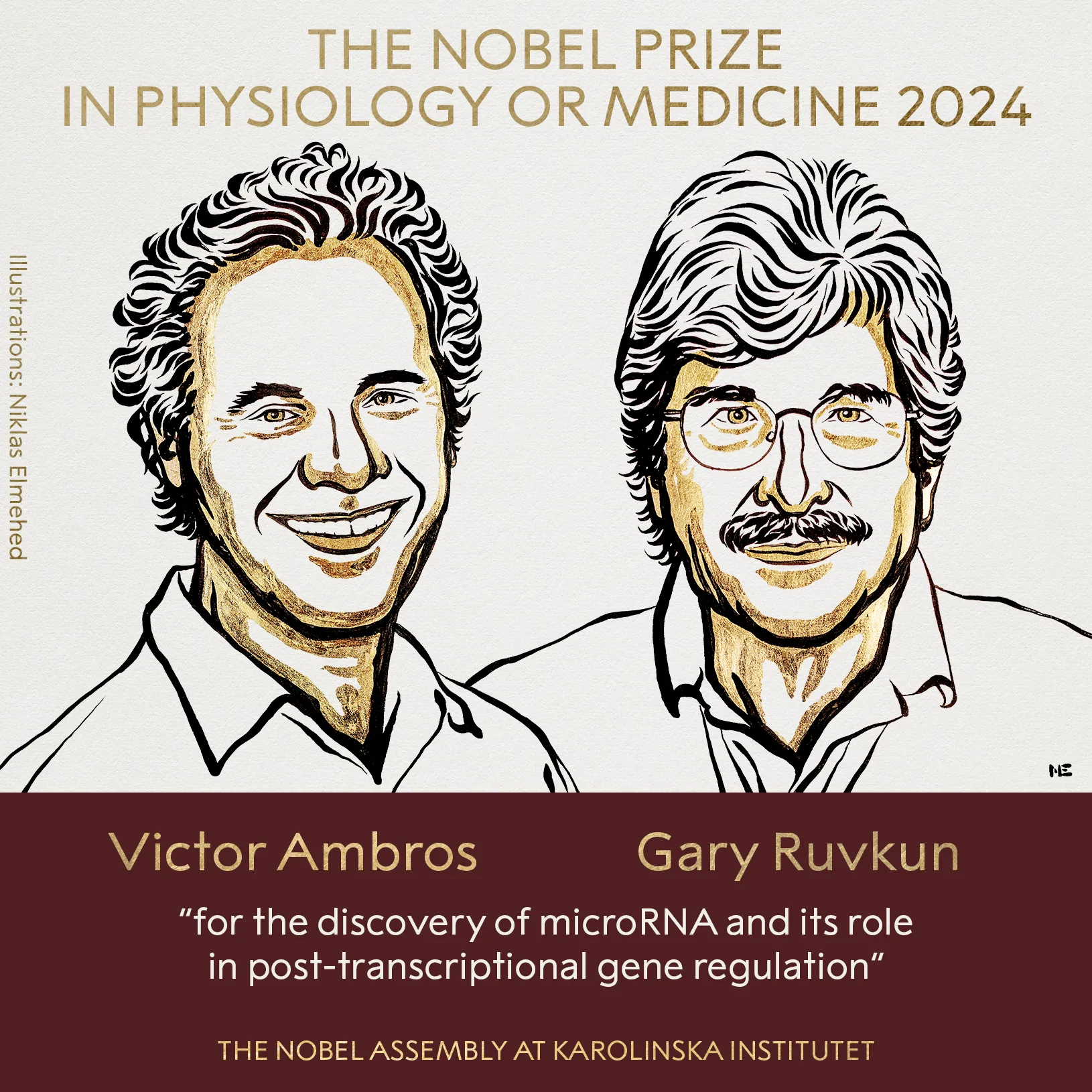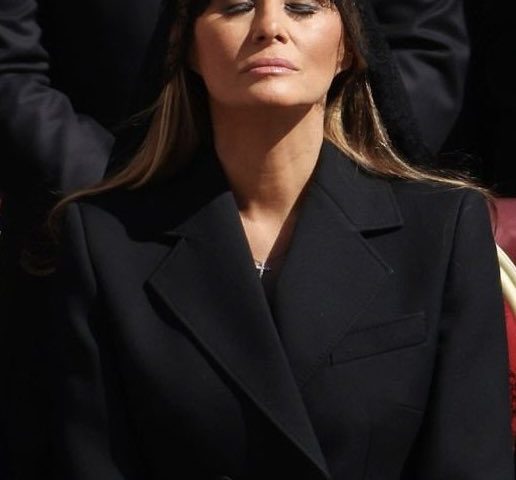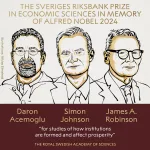The 2024 Nobel Prize in Physiology or Medicine has been jointly awarded to United States medicine professors, Victor Ambros and Gary Ruvkun for their groundbreaking discovery of microRNA, a small but crucial molecule that plays a significant role in gene control.
This was announced by the Nobel Committee for Medicine at the Karolinska Institutet in Sweden on Monday.
Join our WhatsApp ChannelThe microRNA discovery has changed the scientific understanding of how organisms develop and function.
MicroRNA (Ribonucleic Acid), also known as miRNA, is a class of tiny RNA molecules that control the expression of genes, ensuring that they function correctly.
The Nobel committee highlighted that Ambros and Ruvkun’s research was a pivotal breakthrough, revealing that these molecules govern gene regulation in the roundworm Caenorhabditis elegans—a discovery that extends to all multicellular organisms, including humans.
READ ALSO: Nobel Prize 2024: 10 Key Facts To Know
The Nobel Committee noted that the pair’s research demonstrated a completely new principle of gene regulation, one that is crucial for cellular development and differentiation. “If gene regulation goes off track, it can lead to diseases such as cancer, diabetes, or autoimmune disorders,” the committee stated, underlining the far-reaching implications of their work.
Today, scientists know that the human genome codes for more than 1,000 different types of microRNA, which play an essential role in the development and functioning of organisms.
Victor Ambros, a professor at the University of Massachusetts Medical School, and Gary Ruvkun, a professor at Harvard Medical School and affiliated with Massachusetts General Hospital in Boston, have collaborated closely throughout their careers. Their initial work in the late 1980s, conducted under the mentorship of Robert Horvitz (a 2002 Nobel Laureate), involved studying gene regulation in C. elegans. At first, their findings were dismissed as species-specific, but they eventually gained recognition for uncovering universal principles of gene regulation.
“While last year’s award was connected to the direct application in COVID-19 vaccines, this year’s award marks a fundamental leap in understanding biology with many future applications,” said Professor Gunilla Karlsson Hedestam of the Karolinska Institute.
In 2023, Katalin Karikó and Drew Weissman received the Nobel Prize for discoveries that enabled the development of mRNA vaccines against COVID-19.
This prize award kicks off a week of Nobel announcements, with the Prize for Physics expected on Tuesday, October 8, followed by the Chemistry, Literature, Peace, and Economic Sciences awards. The Nobel Laureates will share the prize money of 11 million Swedish crowns ($1.1 million), and will each receive gold medal, and a diploma at the award ceremony scheduled for December 10, which marks the death anniversary of Alfred Nobel, the prize’s founder.
Since the Nobel Prize in Physiology or Medicine was first awarded in 1901, 115 prizes have been given, honoring some of the world’s most transformative medical discoveries.



















Follow Us